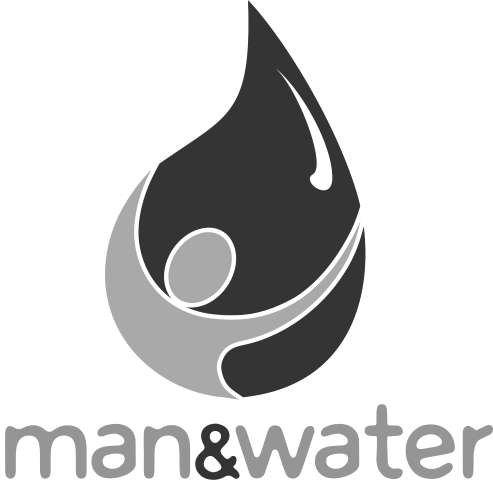- What is the subject of this Master’s Degree?
This MSc is considered to be an innovative and unique program of its kind at a global level, since it is the only one that approaches -in a holistic way- the issue of water as a natural resource on earth, whether it is in excess, sufficiency or lack. Thus, it is addressed to scientists, researchers, and companies’s executives involved with water issues in countries from all over the world, regardless of their climate.
- Who is this programme addressed to?
A) To new scientists who intend to pursue an academic or research career in the fields of water storage, management, protection, utilization, and control, either as a natural resource, as a commodity or even as a commodity potential risk.
B) To members of organizations, companies, and private or public bodies which have water as their subject, and are interested in its socio-economic, political, technical or biomedical aspects.
C) To people with a relevant scientific background, who have or intend to operate companies, laboratories, offices or businesses whose subject is or will be water examined through any of the perspectives mentioned above.
Given the strong international character of the programme, all the parties referred to in A), B), C), may be from any country in the world, as it is being developed in collaboration with the scientific staff of UNESCO Chair Con-E-Ect. The Chair is hosted at the Department of Forestry and Natural Environment Management of the TEI EMT. For this reason, this particular MSc is supported by the UNESCO National Commission.
- Who is organizing the MSc “Water Resources of the Mediterranean”?
The programme is implemented by the Department of Forestry and Natural Environment Managent of the Technological Educational Institute of Eastern Macedonia and Thrace. The Department of Forestry and Natural Environment Management of Drama was founded in 1985. Since 2001, the Department is housed in the new modern buildings. Such a master’s programme, focusing on Water Resources Management, either under conditions of shortage or in excess conditions, is being offered for the first time.
- What are the aims and objectives of the programme?
The purpose of this programme is to teach ways of water resources management either under conditions of water lack, drought or desertification, or in conditions of overflow or excess (flood conditions). It goes without saying that the methodologies in the two above-mentioned cases are quite different and for this reason two orientations are offered:
- “Lack of Water”
- “Excess of Water”
- What are the conditions for enrollment in the programme?
The programme accepts graduates recognized institutions of similar focus. Undergraduate students can also apply, provided that they have obtained their degree or completed their studies before starting the course.
- What is the duration of studies?
The duration of the programme is set at three semesters, of which the third is allocated for the thesis.
- What is the language of instruction?
The language of instruction is Greek for Greek students and English for foreign students.
- What is the structure of the postgraduate programme?
During their participation in the programme, students are required to attend courses, participate in laboratory exercises, and to write a thesis. There is also a range of rural exercises to be carried out in Greece or abroad. The lectures take place in the city of Drama and some of them in the city of Kavala, at the TEI EMT on Fridays (afternoon) and Saturdays (morning – afternoon). The above timetable has been selected to facilitate working students.
More specifically:
1st Semester: 5 Core Courses for both orientations.
2nd Semester: 3 obligatory courses for the orientation “Water shortage”
or
3 obligatory courses for “Excess water”
plus
2 elective courses (from a group of 6 offered) that are available to both orientations
That means that each student is required to attend the 5 core courses in the first semester and the 3 compulsory courses of the orientation they took, along with 2 choices in the second semester.
3rd Semester, Thesis writing.
The Master’s Thesis is publicly defended against a three-member committee of examiners.
For the completion of the postgraduate programme it is required a successful examination in the 5 courses of the first semester, the 3 + 2 courses of the second semester, and the completion of the thesis in the 3rd semester. Each course has 6 credits (ECTS), and a thesis has 30 credits (ECTS). Therefore, this postgraduate programme allocates 10 x 6 = 60 ECTS from the 2 semesters of the courses and 30 ECTS from the thesis; a total of 90 ECTS.
- Can a student follow both orientations?
Yes. In this case they must have attended 13 courses and their certificate will be credited with 108 ECTS. But they has to pay tuition fees for 13 courses respectively.
- What is the cost of the programme? How often are the tuition fees paid?
The total cost of the programme amounts to € 5000, and is paid in 3 installments. The first installment is paid along with the registration. Submission of the application does not create financial obligations for the prospective student.
- What kind of teachers comprises the teaching staff?
The programme is taught by distinguished teachers of international prestige with acknowledged research, and professional and educational experience. These teachers come from the US, Europe and Greece. The student has the possibility to personally communicate with the teachers for all academic matters.
- Why choose the MSc “Man and Water” postgraduate programme?
It is universally known that water is the most important natural resource in the world. Graduates of this program will have great opportunities to find work in Greece and abroad after the completion of the programme. Numerous local and international organizations, businesses, public services, and water management authorities are expected to show an interest in recruiting graduates of this programme, given that there are no graduates of a similar programme anywhere in the world.
Also, the demand for graduates of this programme is expected to be high by companies and organizations from all the Mediterranean countries of Europe, Asia and Africa, particularly from the Middle East.
It should be noted that a specialized office will be created, in order to help the graduates with finding employment in Greek and foreign organizations.
© Copyright 2018 - ΠΜΣ Άνθρωπος και Νερό - Διεθνές Πανεπιστήμιο Ελλάδος
Designed and developed by Ioannis Kazanidis

